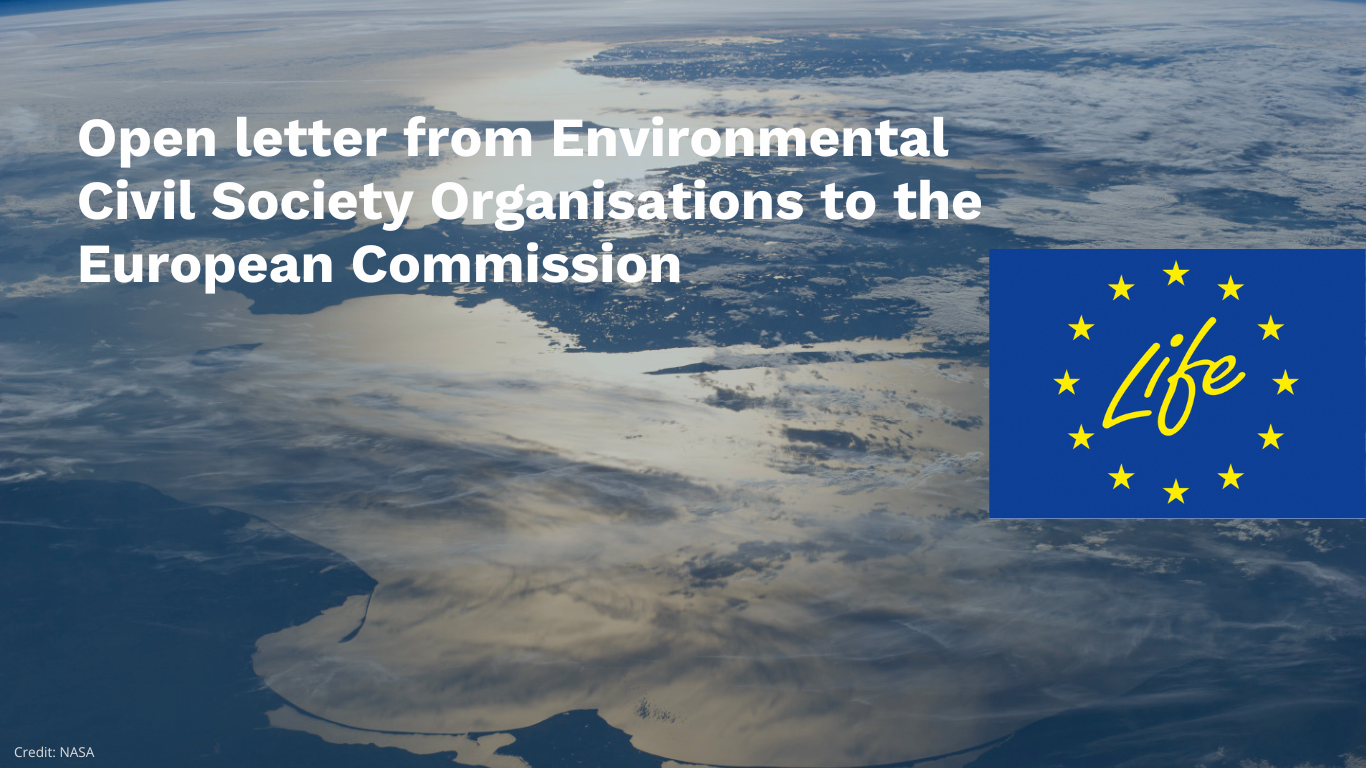Joint civil society letter to EU Commission on EU LIFE funding
EU LIFE operating grants: ensuring public participation in the development of environmental policy, enabling civil society engagement to strengthen democracy and support the European project.

5 December 2024 - In an open letter to the European Commission, together with other Environmental Civil Society Organisations (CSOs), we have called for enhanced recognition and support of our essential role "not only for Europe’s future, strong public participation and the resilience of European democracy, but also as a legal requirement under the Treaties and the Aarhus Convention".
The letter emphasizes the critical contribution of civil society to EU policymaking and the urgency of sustained funding to uphold their work in tackling pressing global challenges such as climate change, pollution, and biodiversity loss.
The Role of Civil Society: Bridging Citizens and Policymakers
Civil society organisations serve as vital intermediaries between EU institutions and its citizens, ensuring that public voices resonate in policy decisions. These groups safeguard transparency, nurture institutional trust, and offer innovative, citizen-centered solutions to environmental challenges like marine conservation, water quality improvement, and renewable energy development.
“We represent significantly more than fifty million citizens involved in environmental organisations and have, over the past decades, constructively engaged in the development and implementation of EU policies”, our joint letter states.
Legal Foundation for Participation: A Core EU Value
The coalition highlights that civil society engagement is not merely aspirational but a legal obligation under the Aarhus Convention and Treaty on European Union (TEU).
This includes providing the “citizens and representative associations the opportunity
to express and exchange their views in all areas of Union action” and stipulating that the
“institutions are required to maintain an open, transparent, and regular dialogue with civil society”.
The EU LIFE Programme: A Strategic Investment in Civil Society
The LIFE Programme, the EU’s financial instrument supporting environmental and climate action, explicitly prioritizes the involvement of civil society. Through this framework, NGOs play a pivotal role in implementing EU strategies, driving innovation, and amplifying policy impacts.
The letter stresses the EU LIFE Programme´s contribution "to the strategic priorities of the EU, and it has a long and successful history of supporting bottom-up projects that have helped CSOs and wider NGOs work with a range of stakeholders (including researchers and academia, businesses, farmers, local communities and others) across Europe to help mitigate climate change, ensure a fossil free energy transition, support farmers engaging in organic and agroecological practices, improve air and water quality, support nature conservation and restoration together with local actors and to engage with businesses in the creation of a sustainable economy, to cite a few."
The way forward
We are open to working with the European Commission and all EU institutions in advancing the European project for the benefit of all, for present and future generations.
***
Read the full letter and list of signatories here.

